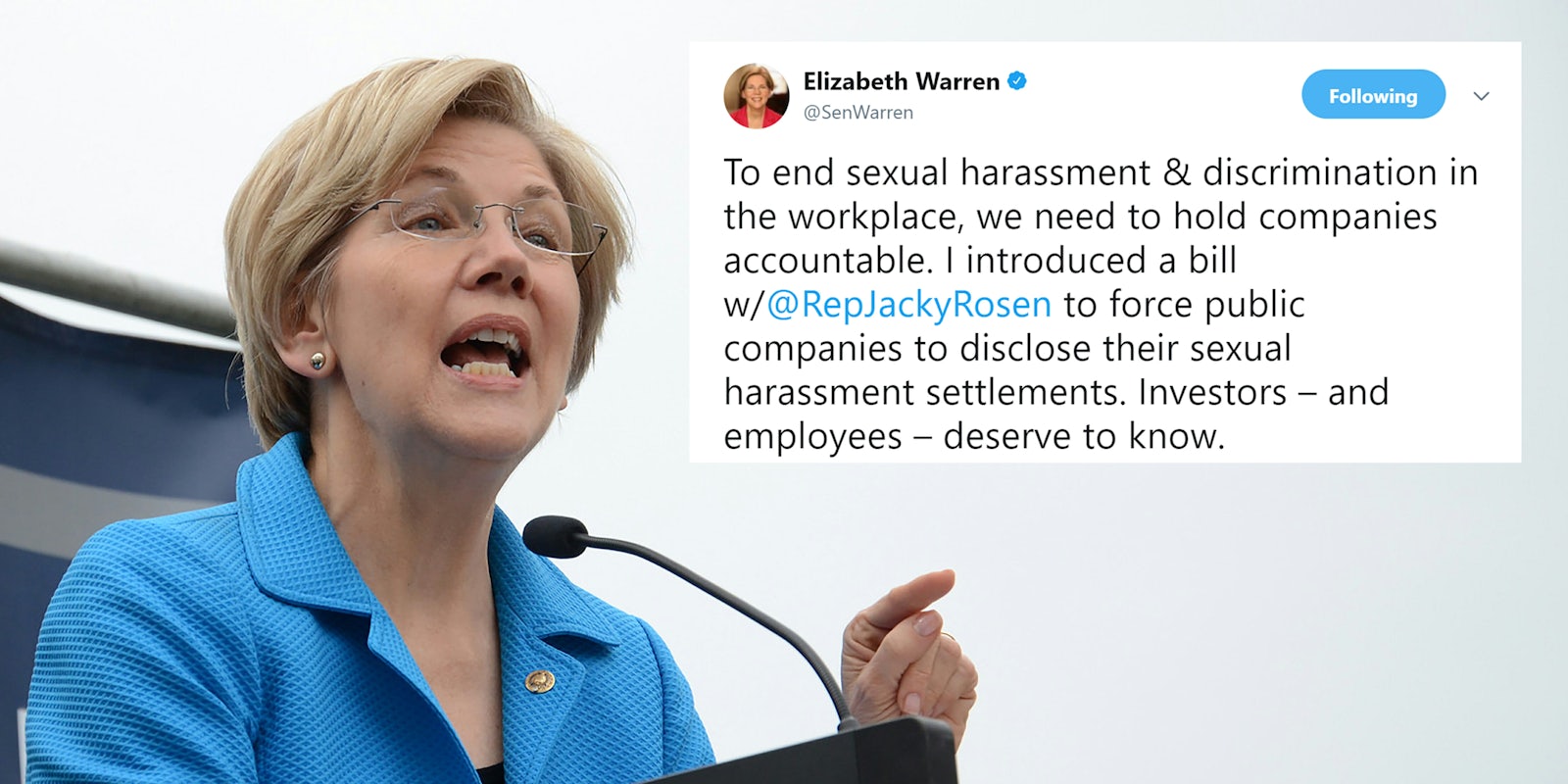Sen. Elizabeth Warren (D-Mass.) and Rep. Jacky Rosen (D-Nev.) want public companies to step into the “sunlight” and make sexual harassment data available to the public. The legislation, called the Sunlight in Workplace Harassment Act, was first reviewed by BuzzFeed News before its introduction on Tuesday morning.
To end sexual harassment & discrimination in the workplace, we need to hold companies accountable. I introduced a bill w/@RepJackyRosen to force public companies to disclose their sexual harassment settlements. Investors – and employees – deserve to know. https://t.co/aYfzrWq57R
— Elizabeth Warren (@SenWarren) February 27, 2018
If the bill is passed, public companies would be annually required to report the number of sexual harassment-related settlements made and the total amount of money spent on them. The legislation would also require reports on settlements made based on discrimination-related complaints.
The bill would include any “behavior of an employee … toward another such employee, without regard to whether that behavior occurred in the workplace” and apply to contractors and other employees under the supervision of the public companies. Public companies would also have to release the “average length of time” an employer took to resolve a sexual harassment complaint.
However, the bill prohibits the disclosure of employees’ names involved in the settlements, according to BuzzFeed News.
Twitter is reacting to Warren’s announcement with mixed emotions. Some Twitter users think the bill is a great idea but tweeted that they wanted Warren to “start with Congress” first.
Great idea— This will reveal how pervasive this problem is.
— Anja Vojvodic (@AnjaVojvodic78) February 27, 2018
Let’s start with Congress. My tax dollars should not be used as a payoff to make harassment claims disappear. Thanks
— Dennis Mahoney (@DennisM47642970) February 27, 2018
https://twitter.com/hbergollo/status/968505076057886720
Congress is currently operating under a harassment-filing process that was put in place in 1995, the Washington Post reports.
According to the Post, “congressional employees face a confusing process” when trying to file a harassment complaint. A claimant has 180 days after an alleged incident to give written notice to the Office of Compliance. To even gain access to the form to file, an accuser has to call the office for a password.
The claimant must also go through a counseling process which “typically lasts 30 days,” and is followed up by another 30 days of mediation to “try to resolve the complaint.” If mediation fails, the accuser can ask for an administrative hearing or file a case in federal civil court. Either way, “the allegation and the case remain confidential, except in limited circumstance,” according to the Post.
But in the wake of the #MeToo movement, it has become clear that more transparency is needed when dealing with sexual harassment in both the public and private sector.
Politicians too?
— FuriousFeline (@jerseycornelia) February 27, 2018
“Our bill will help systemically expose workplace harassment and push employers across the country to aggressively prevent it,” Warren told BuzzFeed News. “I’m working to make sure Congress prevents workplace harassment both within its walls and outside of them.”
